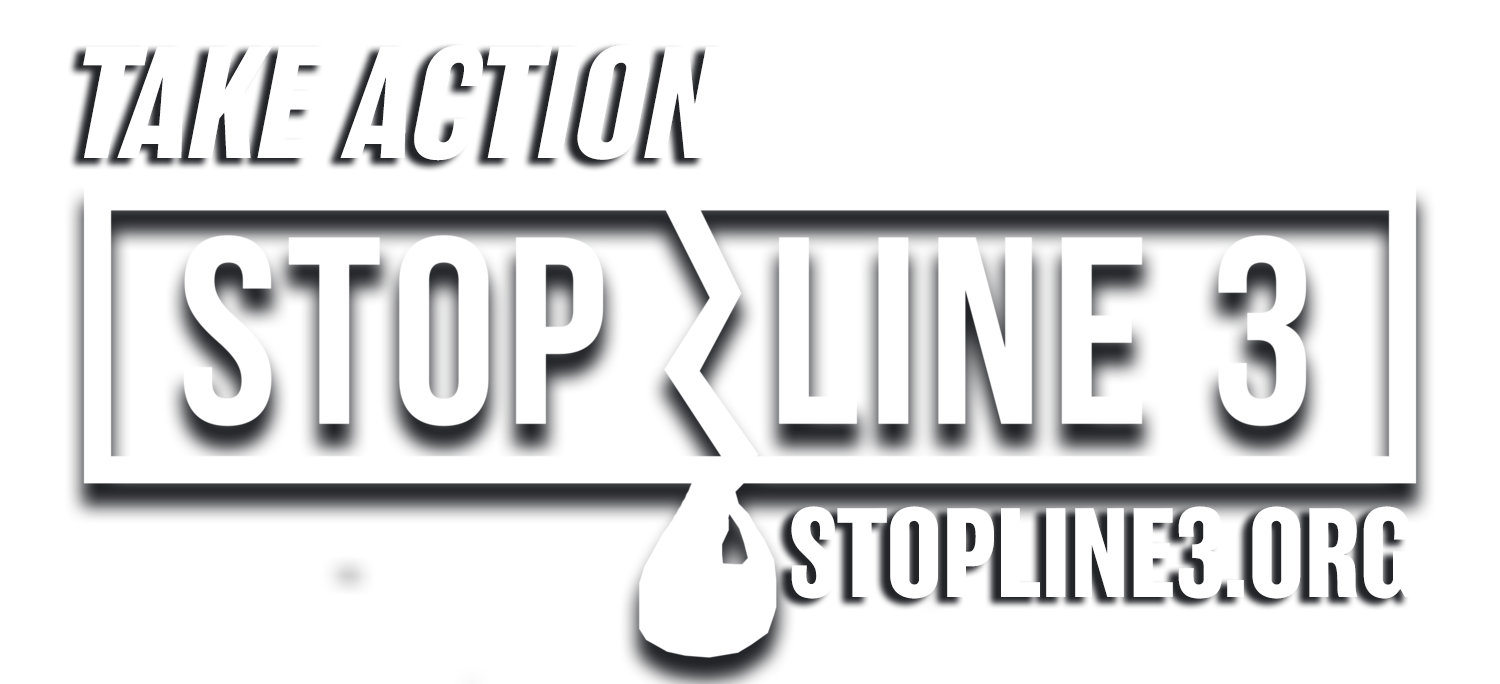This week, the MN Public Utilities Commission (PUC) began its final meetings to decide the fate of Enbridge’s proposed new Line 3. On Monday, lawyers and representatives from each intervening party gave 10 minutes of oral argument, and on Tuesday, the Commissioners asked questions of the parties and discussed details. Several different commissioners indicated that they have not yet made a decision on Line 3 and don't know what to do. They also commented several times about feeling trapped by, on one side, the impact of a new pipeline, and on the other, the environmental threat of continued use of existing Line 3. Somehow they still do not see other options!
Enbridge kicked things off Monday morning with a last ditch effort to sweeten the deal by making 3 new promises: they offered to buy renewable energy credits to “offset” the energy used to run the pipeline, to create a trust fund for decommissioning old pipelines in Minnesota in the future, and to provide a financial guarantee from its parent company for spill response. These desperate pleas follow two similar last-minute announcements made earlier this month, in which Enbridge suddenly offered to remove the old Line 3 at each landowner’s request, and to “encourage their contractors” to spend $100 million on Native American employees or companies. They are scared and making promises without providing any information on how any of these pies in the sky would work, who would oversee them, who has the jurisdiction to enforce, or whether or not anything they are proposing is even legally possible. It is ridiculous that the PUC is now asked to make decisions based on multiple, major, new aspects of the project that have not been part of the last 5 years of analysis and policy discourse.
The promise of a financial guarantee comes as direct response to Administrative Law Judge O’Reilley’s final report and recommendation, released in April, which showed that Enbridge has a complex corporate structure that shields the parent company from any liability, so that they would not be responsible for spill or cleanup costs in any way.
The final ALJ report concluded that the PUC should deny the proposed new corridor and instead require Enbridge to remove the old line and replace it in-trench. But the current route crosses the Leech Lake and Fond du Lac Reservations, and the Leech Lake Band reiterated its position this week that they absolutely will not allow another pipeline to cross their lands and that they want the existing Line 3 shut down and removed as soon as possible.
The other 4 tribes intervening in the PUC process also gave powerful testimony, affirming that “No Means No.” Other opposing intervenors remained unmoved as well. Winona LaDuke spoke of the collective addiction to oil that Line 3 both represents and feeds, encouraging these decision-makers to embrace the opportunity to do right for future generations. She reminded the PUC that they are considering approving “the equivalent of 50 coal-fired power plants,” and that major banks have already divested $6 trillion from fossil fuels.
The MN Department of Commerce doubled down on their position, coming out twice as strong against the pipeline as they have been so far. This is huge because the DOC is a direct part of Governor Dayton’s administration and could not take this position without his consent. They affirmed and strengthened the conclusion from their written testimony, that Enbridge has failed to show a need for the project, and that the socioeconomic and environmental risks that Line 3 poses, especially to Native communities, far outweigh any benefits to society.
One PUC Commissioner, Republican John Tuma, pushed Enbridge to clarify the promises they had thrown into their closing arguments. With each of those promises, “there is considerable devil in the details,” said Tuma. He requested they be submitted in writing, with detailed plans of how they might be put in motion, and emphasized that things like energy credits and corporate guarantees aren’t real until they are practiced and enforced. “This is not about you coming in here, in the last minute, and yanking something out of the rabbit’s hat,” he warned. The Department of Commerce agreed with his skepticism.
In other words, despite 5 years of public meetings and testimony to collect a mountain range of evidence, many questions remain and countless more have popped up as the PUC tries to make a decision.
Some water protectors felt optimistic that the PUC was starting to listen and grapple with the serious issues of the case. Others remained skeptical of what they saw as the theatrics of bureaucracy. “Personally, I’m afraid for the wild rice, I’m afraid for the water,” said Tania Aubid, Ogichidaakwe from East Lake. “We’ve been standing strong, we’ve been fighting this fight for a long time now… those who really do love Minnesota, come here next week. Miigwetch.”
The PUC is scheduled to rule on both the Certificate of Need and Route Permit next week, with at least 2 more meetings scheduled for June 26 and 27. They attempted to add a 5th day of meetings today, June 20th, but several parties indicated they would not be available and questioned the legality of such a drastic last-minute schedule change. The PUC dismissed those concerns but decided instead to simply continue on June 28th and 29th if necessary.

